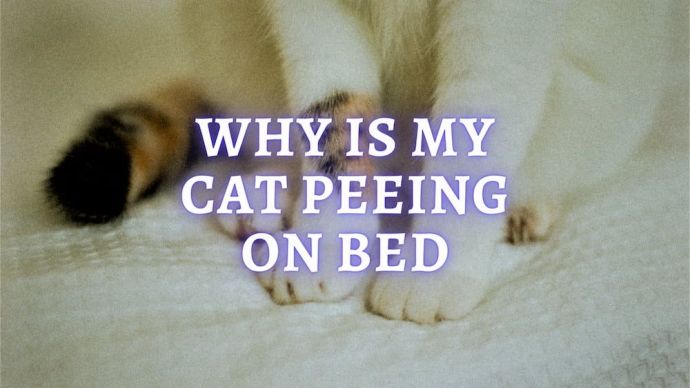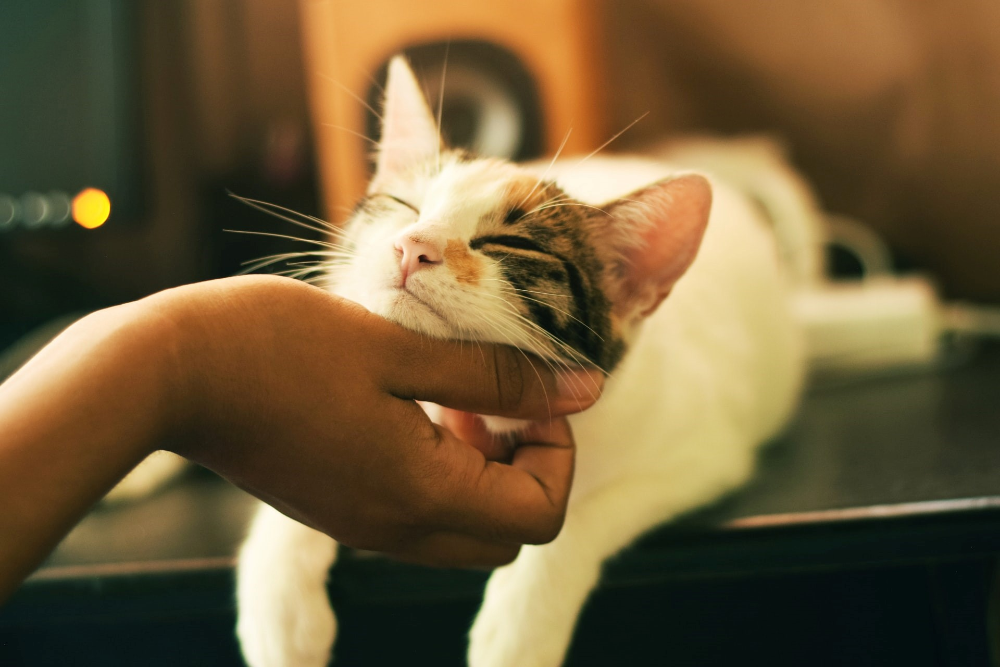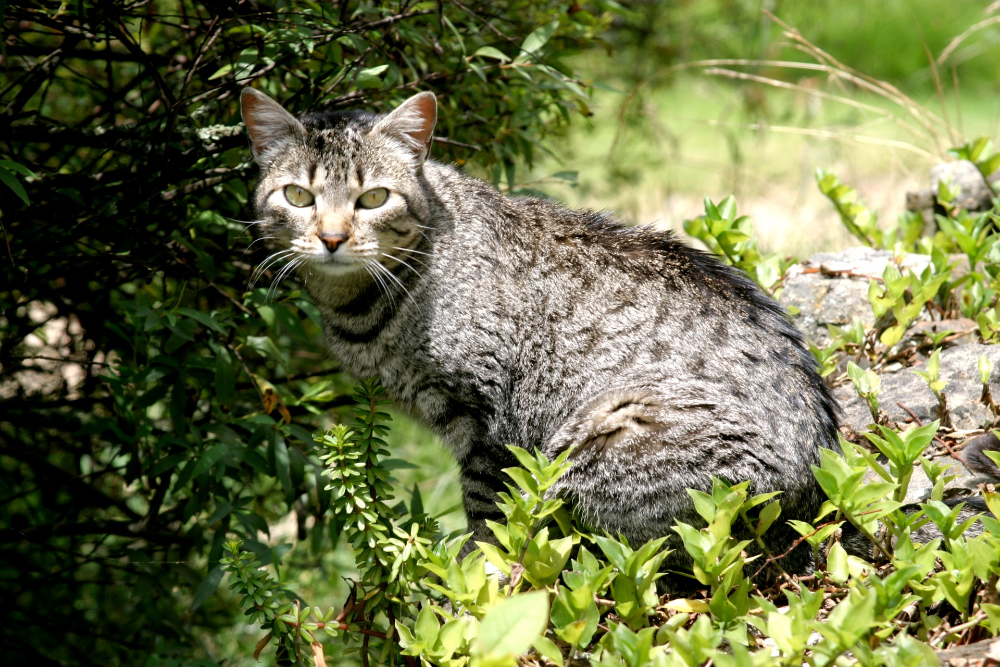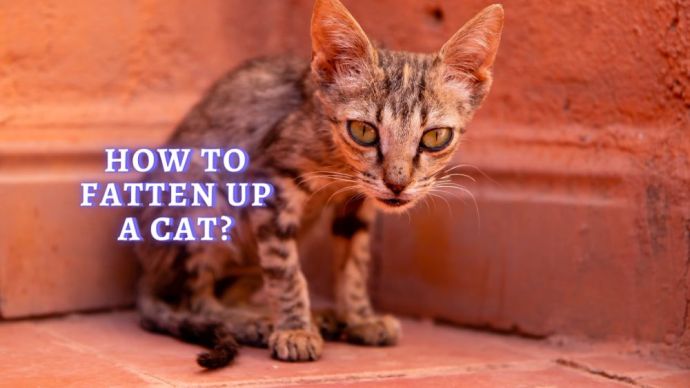Adopting an Adult Cat: What Should I Know (Veterinary Advice)
Written by:
Author: Dr. Edele Grey
Dr. Edele Grey is a veterinary surgeon with seven years of experience. She professionally works mostly with horses but has treated pets of all sizes including terrapins, llamas, and others. Dr. Grey graduated with honors from the University College Dublin, Ireland, has completed further education in Equine Sports Medicine. In her free time, she enjoys writing about pet ownership and educating people about veterinary care of animals and preventing disease.
View all 10 articlesLearn about our editorial process and veterinary review board.
Viewed: 227
Updated on: 08/03/2022
It’s said that cats will always land on their feet, but occasionally they may need a helping hand in finding their perfect forever home. You know you want to increase your family size by one furry feline. Now you just have to find one. Adopting a pet is incredibly rewarding, particularly if you adopt an older pet.
What age is best to Adopt a Cat?
The dilemma now: choosing a kitten (less than 1-year-old) or adult (1-year-old or older) cat to enrich your home? Kittens are cute, bundles of mayhem, and full of energy, similar to human babies; they have no “off-switch.” With demanding little furballs, kittens require frequent feeding and training and will require neutering as they mature. Adopting a kitten plays a significant role in developing their personalities and social skills, which is quite the responsibility.
On the other hand, adult pets are self-reliant, are already litter-trained, and likely neutered. Adult cats are also generally better behaved than most kittens. Their personalities have already been formed. When you spend time with an adult pet before adopting, you can see if you’re both suited to a life together, with no surprises down the road. Older pets also transition to a new home better than many kittens.
READ MORE: Best Cat Trees
Is it better to Adopt an Older Cat?
There are advantages of adopting an adult cat over a kitten:
- Adult cats are almost always easier to integrate into your life and home than kittens, which may come as a surprise to many people.
- An older cat can adapt to any new home situation; small children, adults-only homes, etc. Some can even transition to living with other pets very well.
- Adult pets are less messy than kittens, who will often play in their litter box or food, and they don’t need help grooming (unless long-haired or impaired in some way). Kittens can be pretty destructive, chewing on furniture when teething and climbing the curtains in play. However, adult cats tend not to be as harmful despite what some YouTube videos would have us believe.
- Another great advantage of adopting an adult pet over a kitten is that they are less likely to break when in contact with young children. Wriggly kittens are delicate and can be hurt if they fall or are stepped on accidentally; they are also more likely to scratch or bite a small child in frustration than an adult cat. Older cats enjoy being petted, are sturdier, and are very adept at escaping a situation they don’t want to be part of without hurting anyone (except perhaps our feelings when our adoring love is rejected).
What Cats Have The Toughest Time Getting Adopted?
Kittens and young adults are generally the first to be adopted into forever homes from shelters leaving behind the aged/elderly cats or those with special needs. But, strangely, black pets also find it difficult to be adopted, possibly related to the many superstitions surrounding these majestic felines.
Elderly cats likely find it challenging to find adoptive homes due to age and increasing ailments that come with aging. Some require daily medications or assistance grooming and maintaining their hygiene. These elderly pets may cost more with these health problems and have a shorter life span, but they are usually the sweetest, most affectionate ones.
Unfortunately, these adult cats are often given up by previous families due to the death of an owner, divorce, or change in circumstances that mean they can’t provide the life this pet deserves. This may be their last chance at finding a happy home for their twilight years.
Cats with special needs also struggle to find new families. Affected pets may be blind, deaf, or amputees who may require special attention or medications in some situations. These pets may require some adaptations to their living situation (e.g., indoor only) but make up for any of these with their abundance of affection and love to their new adoptive parents.
Patience is key! Any environmental change can be difficult for many cats of any age, including kittens. When you introduce your pet to their new home, ensure you’ve provided water and food bowls, a quiet space for hiding, and a scratching post and toys for play when they’re settled in. Their litter box should be placed away from traffic and food areas. Ideally, you should give your pet a selection of spots to choose where to sleep, with at least one being elevated so they can watch what’s happening. If possible, provide your new housemate with a room just for them to help them feel secure.
Cat’s are incredibly reliant on their sense of smell, and this helps when your new fur-baby is settling into their new home. You can use this to your advantage by giving an item of your clothing/cat bed to the shelter for a few days before you take your pet home. This allows the scent of their surroundings to impregnate the fabric and make them feel more comfortable when moving into their new home. Synthetic feline facial pheromones are also available in sprays or plug-in diffusers which can help reassure your new feline and reduce their stress levels while settling into their new home.
When you bring your pet home, allow them to leave the travel carrier in their own time. If you have other pets, keeping them separate is best until your new furry family member feels more confident and settled in their new surroundings. Cats are typically cautious by nature and may need some encouragement to understand that their new home is safe; you can give a treat or two to develop the bond of trust between you both or encourage them with an interactive toy. But, again, the most important thing to remember is patience!
READ MORE: The 10 Best Cat Food for Older Cats (Review)
How long does it take for a Cat to get used to its new home?
Like humans, all cats are different; thus, the length of time needed varies. Most cats will have accepted their new cat home and surroundings in approximately 2 weeks or so, while others may take a month or more. If your new pet is both indoor and outdoor, then you should keep them confined within their new home for at least 2 weeks before trying to introduce them to their new outdoors. They need to be confident in the security of their home before exploring outdoors.
How will my Cat let me know if they’re stressed?
Despite being predatorial animals, cats are very susceptible to stress; as solitary, independent animals, they can hide signs of stress very well. Moving home, your new feline friend will be suffering from some degree of stress which may be severe.
Here are some common signs of stress in pets, which can be both physical and behavioral:
- Tummy upsets with vomiting or diarrhea
- Bald patches or skin sores due to over-grooming
- Loss of appetite or even increased appetite
- Eating abnormal items such as wool (called pica)
- Increased sleeping or appearing lethargic
- Weight loss or gain in short spaces of time
- Difficulty urinating or frequently attempting to urinate
- Going to the toilet outside the litter tray, including pooping in shoes or peeing on the bed
- Destroying furniture, scratching or biting, and being aggressive toward people or other pets
- Spraying urine on furniture or walls
- Increased hiding behaviors
- Vocalizing more than usual
Simply looking at your cat’s face can help you to ascertain if they’re stressed. A chilled-out and happy kitty will have their ears pointing forward while relaxed, and their whiskers will be relaxed against their face. Their eyes will be closed or semi-closed with small pupils. A stressed pet will have flattened ears out to the side of the head with wide eyes and large pupils. Their whiskers will be rigid and pointing forward. Stressed cats may hide, try to climb up onto high furniture, or flatten themselves against the floor. Stressed pets are generally unwilling to be held or touched.
Now we know what to watch out for and help protect our feline side-kick from these stresses. Moving home is a major one that cannot be avoided when you adopt a new adult cat, but you can help manage your cat’s environment to minimize stress by following the tips above. Suppose you’ve tried all of the tips above. In that case, you may need to take your kitty to see your veterinarian for some advice and to ensure there is no physical illness causing any of these signs or even exacerbating your pet’s stress levels.
FAQ
Is adopting an adult cat a good idea?
Adult cats are more independent, are usually already accustomed to the tray and are calmer than kittens. If you take an older cat from a shelter, it is possible that the cat will already be sterilized and vaccinated.
Is it bad to adopt an adult cat?
Tame the animal only if you plan to keep the animal for yourself. Don’t worry if you can’t tame a new cat. A fully tamed cat may prefer to spend time alone. Some get used to it within a few days, others it will take weeks or even months. It will take some patience to help the cat get used to its new home.
What age cat is best to adopt?
Never adopt a kitten who is still nursing from its mother. In order for the pet to grow physically and mentally, it should not be done before 2 months. At 3 months, the kitten should be ready to part with its mother and move into the caring hands of a new owner.
Is it easier to adopt an adult cat?
Every cat is different; therefore, it is difficult to determine exactly the best age to adopt. Some keep their distance and allow themselves to be petted occasionally. And there are also wild, not socialized (or insufficiently socialized) cats that were taken from a shelter or picked up on the street.
How long does it take for a cat to get used to a new home?
It is impossible to specify exactly the time it will take for the cat to feel comfortable in a new place. Some get used to it within a few days while others will take weeks or even months. It will take some patience to help the new cat get used to its new home.
Final Advice
Many adult cats have a tough time finding their forever homes, particularly when they have what some people consider to be extra difficulties. Despite this, if you do open your home to an older pet, you won’t regret it! Full of love, these older cats often seem almost grateful to you for giving them their best chance at a happy life while still keeping all those kitty-specific quirks that make for excellent online videos…after all, there’s a reason the internet was made for pets.
Link
1. Human influences shape the first spatially explicit national estimate of urban unowned cat abundance. Jennifer L. McDonaldcorresponding author1,2 and Elizabeth Skillings1; Published online 2021 Oct 28. ncbi.nlm.nih.gov/pmc/articles/PMC8553937/;
2. Perceptions of Responsible Cat Ownership Behaviors among a Convenience Sample of Australians. Alicia Elliott,1 Tiffani J. Howell,1 Emily M. McLeod,2,* and Pauleen C. Bennett1. Published online 2019 Sep 19. ncbi.nlm.nih.gov/pmc/articles/PMC6769723/.
 Cat Veterinary Tips Cat Chewing Cardboard: Why Does My Cat Chew On Cardboard? Vet Advice
Cat Veterinary Tips Cat Chewing Cardboard: Why Does My Cat Chew On Cardboard? Vet Advice - 4382
- 0
 Cat Care Veterinary Telemedicine: How telemedicine can help manage chronic conditions in pets?
Cat Care Veterinary Telemedicine: How telemedicine can help manage chronic conditions in pets? - 568
- 0
 Cat Care Cat Peeing On Bed: Why Your Cat is Peeing on the Bed and How to Stop It?
Cat Care Cat Peeing On Bed: Why Your Cat is Peeing on the Bed and How to Stop It? - 607
- 0
 Cat Care Why Does My Cat Attack My Legs? 10 Reasons Why and What To Do About It (Vet-Approved Advice)
Cat Care Why Does My Cat Attack My Legs? 10 Reasons Why and What To Do About It (Vet-Approved Advice) - 46013
- 21
 Cat Veterinary Tips Cat Stomach Gurgling: Vet Advice on Why is Your Cat Stomach Gurgling?
Cat Veterinary Tips Cat Stomach Gurgling: Vet Advice on Why is Your Cat Stomach Gurgling? - 36469
- 4
 Cat Veterinary Tips My Cat Lost its Voice: Can Cats get Laryngitis? (Vet Advice)
Cat Veterinary Tips My Cat Lost its Voice: Can Cats get Laryngitis? (Vet Advice) - 23554
- 13
























